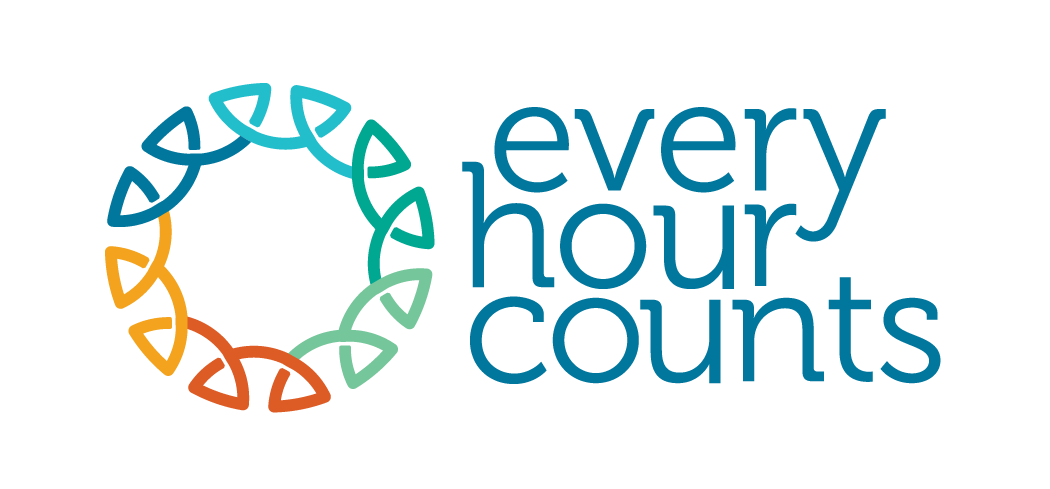Resources
Putting Data to Work for Young People: A Ten-Step Guide for Expanded Learning Intermediaries
How can data best be gathered and used to inform decisions about how to support afterschool and summer programs, attract more students to them and allocate resources? A new 10-step guide from the RAND Corporation, commissioned by Every Hour Counts and supported by The Wallace Foundation and the Charles Stewart Mott Foundation, offers insights into collecting, analyzing and managing data to improve decision making.
The authors of Putting Data to Work for Young People reviewed data-collection efforts among expanded learning intermediaries - Boston After School & Beyond, Providence After School Alliance and Sprockets St Paul - across three cities and developed a step-by-step plan to help nonprofits in other cities implement their own processes for harnessing data effectively.
From Idea to Action: Two Days, 32 Cities, Endless Inspiration
In March 2018, Every Hour Counts brought together city teams from around the country to learn from and tap the expertise of leading expanded-learning intermediary organizations as part of our expanded-learning systems-building institute. From Idea to Action: National Institute for Building Expanded-Learning Systems was designed to dive into the heart of our systems-building work: using cross-sector collaboration to ensure that all young people have access to transformational learning opportunities.
from niche to necessary: scale and sustainability lessons from the frontiers in urban science education (FUSE) Initiative
The Frontiers in Urban Science Education (FUSE) initiative was launched in 2007 by Every Hour Counts, the national network of expanded learning intermediaries, and ExpandED Schools with significant multi-year support and leadership from the Noyce Foundation and the STEM Next Opportunity Fund.
This report shares lessons learned in scaling and sustaining the FUSE initiative and identifies a set of strategies, common challenges, and recommendations to help communities improve young people’s access to high-quality STEM learning in and out of school.
TEN-YEAR CONVENING REPORT
Ten years ago, the national coalition, Every Hour Counts, was formed at a convening of accomplished intermediary leaders and prominent funders in the after-school field. A decade later, funders and practitioners came together once again to reflect on the state of our field and begin to chart a course for its future. This report provides an overview of major developments in the expanded-learning field in the last ten years, and sets forth a vision for the future. The report describes the pressing social issues that impact student learning, including poverty and inequity, and examine the ways in which expanded learning can help remove some of the associated barriers.
MEASUREMENT FRAMEWORK
The Every Hour Counts Measurement Framework is designed to serve as a blueprint for understanding the impact of programs on youth outcomes, making improvements at the system and program levels, and influencing policy.
Messages made simple: communications toolkit for expanded learning
This messaging toolkit is for organizations that use expanded learning to improve opportunities and outcomes for youth. It builds on a collaborative process conducted by Every Hour Counts partners and is available to organizations working in expanded learning, organizations that are building expanded-learning systems, and anyone else who wants to communicate clearly about this important work. The toolkit focuses on helping the field use clear, crisp, consistent language.
In addition to providing strategies and tips for communicating effectively, it provides language to explain the value of expanded learning, the work of intermediaries, and the role of expanded-learning systems in improving outcomes for youth.
the wallace foundation knowledge center
Millions of children and teens lack access to afterschool programs that provide rich opportunities for growth, learning and fun. One possible solution is to coordinate the work of programs, government agencies, private funders and others involved in afterschool programs—that is, build an afterschool system that is greater than the sum of its parts. Key components of afterschool systems include efforts to improve program quality and collection of data to inform decision-making.
Browse the reports and other resources at this Knowledge Center for insights into making high-quality afterschool programming more readily available to young people.







